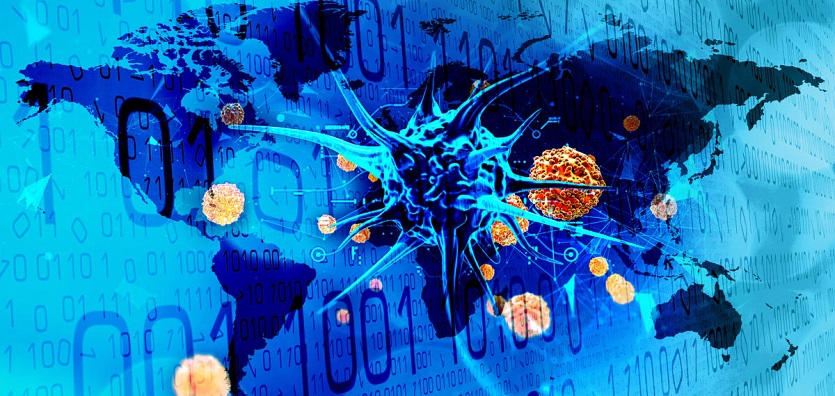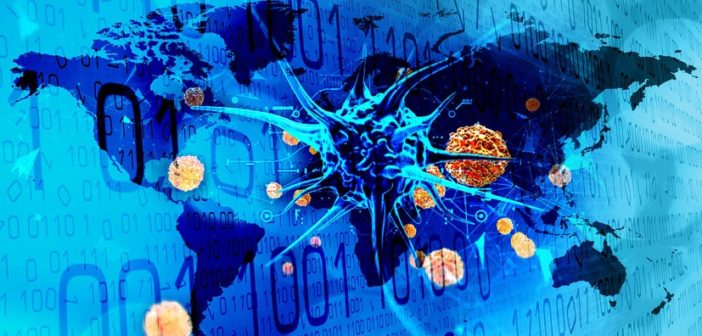
By:
Rommel K Manwong, PhD
Criminologist, Security Consultant, Author
LEAPS Academy Philippines
Introduction
Any health emergency either in the form of outbreak, epidemic or pandemic, is never a joke to deal with. It invades us at every corner of the globe at a rapid pace of fear, chaos and uncertainty. The economy has hit and the stock market worldwide lost a huge amount of money. Commercial and business enterprises are too at stake.
The epicenter country has been jammed immediately by the unwanted incident while other countries also agonized thereafter. The epicenter shift can even be much more devastating for those who are slow to react and the unprepared.
Such unprecedented storm has enormous impact to life and property. But such critical situation brings forth new opportunities to the optimistic. There exist certain uncontrollable conditions out of the unwanted event, nevertheless our critical situational awareness and reactions towards them are all up to us for they are within our reach and capacities. There are strategic opportunities that can ensure business continuity while enduring the storm and preparing for more positive days ahead.
Critical Situational Awareness
Having an accurate and up-to-date view of pandemic threats is crucial point in dealing with pandemic. The 4-A concepts of personal security and safety can be potently useful in dealing with pandemic situations:
Assess – check out indicators. Notice everything in your surroundings and recognize or identify potentially hazardous situations or the threats.
Analyze – scrutinize available information and analyze probabilities sorting them out by priorities. Keep note that not all information may be useful right away but are essential in future decisions.
Articulate – take note and put observations into writing. It is also important to communicate them effectively by being mindful of the words you use because every word count.
Adapt – use information to act or change your behavior accordingly. Decide base on critical thinking about the situation.
Responding Pandemic Initiatives
The key remains in proper planning and preparation. It must state in the plan about the objectives of ensuring that all employees are safe, that panic is lessened, that risks of exposure are minimized, and disruption to operations are curtailed. These must be drawn up from data or information gathering; pandemic threat assessment, implementation of both proactive and reactive measures, plus the application of business continuity and recovery programs.
To handle any pandemic eventuality, a well-structured team of strategic planners must be available which should include an assessment team, implementation team, incident management team, business recovery team and resiliency management team. Each of the teams should be bonded by company policies, procedures and protocols with strategic measures based on key result areas.
Adopting Best Practices
Critical problems need critical solutions. Although some countries may experience a slower peak to the economic impact of the pandemic, some countries earlier hit are seen to have taken action with positive reactions to the economic rebound. Some of these activities may be considered as best practices:
Activation of Recovery Plans and Restructuring Resources – many companies understand that people are the most important resources in any organization. People have the knowledge and the experience to run the business. So, instead of laying off people, resilient companies chose to reallocate them to strategic and recovery planning.
Maximizing the Use of Social Media – promotional efforts can be placed off to social media channels. Each employee may be asked to promote products and services and become part of a company-wide promotion initiative to keep up sales and services reachable among clients and customers. In return, companies use these means for ranking and promotion.
Information Updates and Strategic Communications – a strong and top-down management focused on keeping employees informed on a regular and timely basis. This will prevent, minimize and contain confusion and contradictory information from media reports. A strategic communication team must be utilized.
Work from Home Set Up – the idea of setting up infrastructure to work remotely are given serious consideration in times of pandemic. Companies need to prepare support to their workers should they need to self-isolate. But to be effective, companies must study the following considerations:
- Guidance – provision of “what to do’s and what not to do’s” among employees must be available during a pandemic. These series of communications will give clear detail on how to access email, phone lines, and specific business applications should employees need to work from home at short notice. Workers are also instructed to take laptops with them each day to enable working from home at a moment’s notice. This level of guidance helps employees feel prepared and minimizes disruption if they need to change their normal working environment at any time.
- Equipment and environment – laptop or computers are important equipment for people to work from home. The working environment requires a safe and conducive one, internet connection, telephone headset, webcam or printer. Thus, a home office so to speak.
- Technology – business software as technology support must be available so that equipment will not be useless in a work from home concept.
Enhancing Digital Capability – the fear of contagion caused by face to face meetings and the cancellations of events, big or small, during pandemic changed the landscape and provided the need for digital capabilities. Virtual means become crucial to business continuity. A company that can run web- based events stands a real chance of retaining and expanding its audience, whereas those without experience in the digital events space will need to catch up quickly to stay in the race.
Increase Focus on Customer Convenience – an omnichannel strategy must be set up to keep customers and campaign for new clients. Online sale and services can be adopted considering impacts of home quarantine and “social distancing” schemes. Setting your business up with the right omnichannel presence can set the you apart from the pandemic and the ever-growing global competition.
Preparing for the Bounce-back
Any pandemic will hit the economy hard – both locally and internationally – and it’s a perfect storm for which recovery efforts may take considerable time. We need to accept that recessions are an economic reality that are difficult to predict, but duration is usually short term. Its impacts can be a lot bigger and longer depending on how we are ready and disposed. Those who are prepared to rag away the short-term implications and quickly get back on their feet are resilient and will easily get up.
Learn the Lessons of the Past
Undoubtedly, the storm shall not stay forever. Even though how disastrous and messy, it will eventually pass. It will give us lessons to learn from. The uncertainty will convert into a collective creativity while the volatility it brought us will become an astonishing serenity.
Considering possibilities of new pandemic cases, it is always time to plan for the next coming storm by continuous improvement, research and learning from our mistakes of the past. Proper preparation is always key in deterring, detecting, denying, and delaying the threats posed by any pandemic. Thus, every organization needs a strategic strategy in place within the practices and applications influencing policies and procedures of business continuity.
****
References:
Business Continuity Initiatives
by Rommel Manwong 2020
Business Continuity: Weathering the Storm of Coronavirus
by JCurve Solutions 2020
Communication Best Practices for the Next Infectious Disease Outbreak, Epidemic, or Pandemic
by Michael Scott 2020





